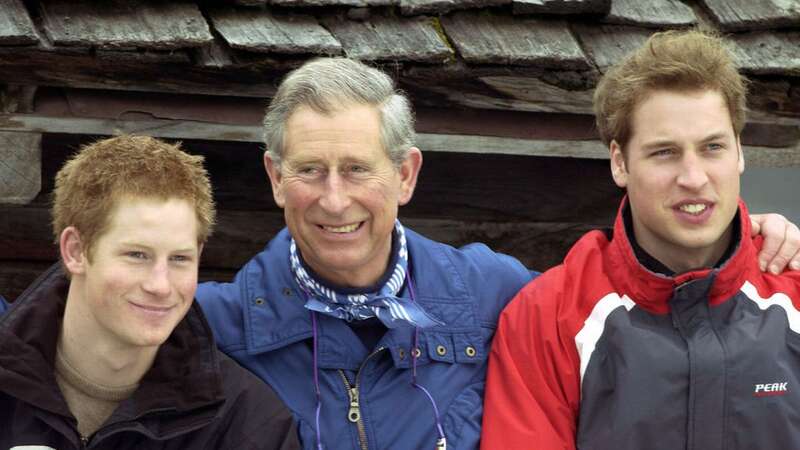

We've all said things that we probably shouldn't have, that either erred on the ill-mannered side or were totally rude, but for King Charles, the risk of making a disagreeable comment is a lot higher.
Most of us are unlikely to ever experience a 'hot mic' moment when we let our tongues speak freely without realising that we are being recorded. But unfortunately for the King, a rude remark he made while speaking to his sons Prince Harry and Prince William was exposed for the whole world to hear.
Back in 2005, the now-monarch was on a skiing trip in Klosters, Switzerland with his two sons, and the royals had agreed to sit for a photocall and brief set of questions from journalists, in exchange for which they would be left alone to enjoy the rest of their holiday in peace.
It was during this photocall, that Charles was caught on microphone making a unpleasant comment to his sons about one of the journalists who had asked them a question: Nicholas Witchell, the BBC's seasoned royal correspondent, who'd held the role since 1998.
The experienced journalist asked Charles - who was then Prince of Wales - about how he was feeling about his upcoming wedding to Camilla, to which Charles replied: "I'm very glad you heard of it anyway," before giving a smile that seemed halfway between a grin and a grimace.
 Meghan Markle 'to unleash her own memoirs' as Prince Harry's drops next week
Meghan Markle 'to unleash her own memoirs' as Prince Harry's drops next week
Charles then muttered under his breath to his sons: "Bloody people. I can't bear that man. He's so awful. He really is." It's unclear whether the royal had any idea that his comment had been picked up by the microphones in front of him, but his real feelings about the BBC journalist had been well and truly exposed for all to hear.
Prince William stayed calm and measured and made a jokey answer to the journalist's question - totally ignoring his father's uncivil comment - "As long as I don't lose the rings. I have one responsibility and I'm bound to do something wrong".
To his credit, Witchell seemed to take the incident in his stride, noting in 2014 that "it was the best thing that happened to me".
The seasoned correspondent explained: "There has never been an apology, and why should there be? He was probably quite right. You know, awful man. You could take the view it was the best thing that happened to me, because it showed that it is our job as BBC journalists to report fairly and accurately, but not to seek approval. We're not there to be liked."
Do you have a story to tell? Email: emma.mackenzie@reachplc.com